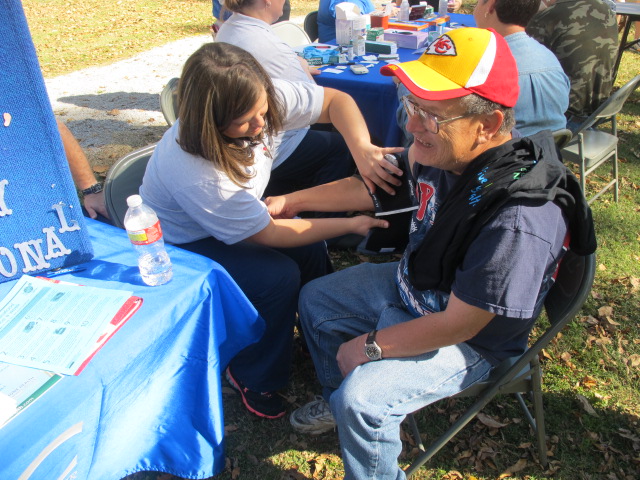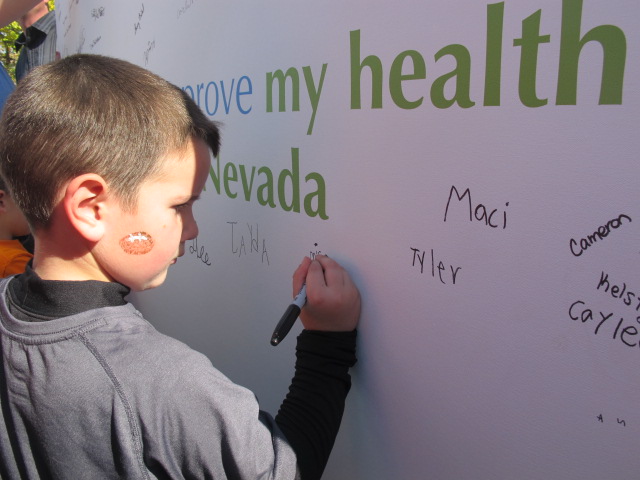Increasingly, the United States is looking to “population health” as a means of providing better health and care to entire communities. Nevertheless, defining such communities and how to improve outcomes, especially for our most vulnerable populations, has been misunderstood by most. There is no single analytical tool, coordinated care model or insurance reimbursement method that can solve our many issues with access to and quality of care – and the associated individual behaviors – for all.
Increasingly, the United States is looking to “population health” as a means of providing better health and care to entire communities. Nevertheless, defining such communities and how to improve outcomes, especially for our most vulnerable populations, has been misunderstood by most. There is no single analytical tool, coordinated care model or insurance reimbursement method that can solve our many issues with access to and quality of care – and the associated individual behaviors – for all. It is only with honest assessment, understanding and transformation of housing, food, transit and education, in tandem with better health information that can lift all citizens.
As we reach a new tipping point, where real value in the industry comes from improving care, partnerships are the key to success. In the case of Cerner, a Kansas City, Missouri-based health IT company, a real shift is occurring in they way they interact with communities. According to leadership, “Cerner is no longer just a supplier; we are extending partnerships with hospitals and our communities.” To make the case, one needn’t look past Missouri, where the US’s largest publically traded health IT company recently advocated for a policy change that resulted in repaired sidewalks and a dog ordinance, all in the name of improving health outcomes.

Everything And Nothing Is The Same
No matter where you go, broader problems are the same. And yet, the individual communities and needs vary greatly due to culture, knowledge, trust and contact. While healthier foods and greater access to such items are needed everywhere, the impact and realistic sustainability of such initiatives do not have the same reach across the country – or even across a zip code.
To join forces around one person at a time – not the venue of care, but the individual – is possible.
To do this, health IT platforms and electronic health records (EHRs) must bring multiple sets of data together and wrap it around the individual by constructing a holistic narrative. This narrative not only includes specific health data, but information about the community and activities of the individuals. Cerner is attempting to do exactly this with its new population health platform,HealtheIntent.” Various electronic solutions help health systems manage populations with health risks and support the individual in improving their own health, as does Cerner’s just-announced HealthyNow app integration with AppleHealthKit.
In Nevada, Missouri for example, Cerner noted that like many rural towns, members had little access to walkways and children would not, and could not, walk to school because of the lack in safe walkways. Not only did pathways not exist in rural areas, but stray dogs were also endangering youth due to a lack of a leash law. By encouraging the region to enact dog regulation and building connecting paths (PedNet), Cerner believed they could actually improve the entire community’s well being. According to Matthew Swindells, Senior Vice President of Population Health and Global Strategy, “We moved from zero information and technology about the health of people in the region to enabling them to walk in their community. By doing things like that and using our health IT products, we believe we are able to change literally the whole of the system.”
And thus was born Healthy Nevada.

Healthy Nevada Community Signatures
Healthy Nevada is a holistic approach to managing the health of a population and the economic development impacts that health is related to. The program hopes to improve the health of the community, as well as the city’s economic vitality. To date the program includes a community garden that has donated more than 17,000 pounds of food to the local pantry and Nevada has become the first rural county to establish a mental health court.
Cost Pressures Are Everywhere
The health system in the US is expensive, inefficient and misaligned. Everyone knows this. Everyone also knows that cost pressures impact every member of the ecosystem, and no one solution can solve all the problems. On various fronts Cerner has been estimating where future health costs will come from. This includes its own growth and expenses on the six Kansas City metro area campuses –summing to over $4.3 billion for the new Three Trails site alone– to analytic platforms that will be needed in care settings to reimbursement strategies employed by insurers and hospital systems to change physician behavior.
The extent to which “partners” and others throughout the system are looking at the future is what Cerner claims make them different from competitors.
Cerner is confident it will double in size over the next 10 years, and Missouri is where they have committed for that to happen. Management aims to become better partners with hospital leadership across the nation, like they have already done with Advocate Health Care and Memorial Hermann. In those settings Cerner is assisting in everything from patient records to workflow.

Cerner world headquarters in Kansas City, Missouri (Photo credit: Wikipedia)
Additionally, as reimbursements change and incentives shift, Cerner would like to see new partnerships forged with payers. They envision cost-efficient and cost-saving efforts with entities like Health Care Services Corporation (HCSC) that enables them to integrate person-level data with physician practices and wellness programs alike across large states such as Texas and Illinois.
Therefore, Mr. Swindells also believes that the greatest advancements will emerge via partnerships and data sharing throughout the health sector.
Partnering With The Community
In addition to dog laws and sidewalks, Cerner is using their platforms and population health tools to begin predicting health behaviors, which they have begun with Illinois-based Advocate Health Care. Like financial models that anticipate what decisions people will make, good data is collected and utilized in real time to help predict when risks may occur based on an individual’s behavior and their environment. This enables health systems to take action to protect the health of individuals and teaches individuals how to help themselves.
Further, the company is participating in everything from operating health clinics in workplaces to cooking classes in communities. When fresh vegetables and home cooked meals are actually cheaper – and far more nutritious – in places like Nevada, Missouri than meals out, Cerner believes it has a role in sharing that responsibility with individuals.
Using such tactics, not only are metrics about health able to be collected, better understood and used, but people are also more empowered to take control over their health. By putting money and efforts into such wide-ranging activities, Cerner might just be on to real population health strategies.
While each person and community is different, the ideology that goes into “population health” might just be the characterization that Cerner is defining.

University of Missouri campus (Photo credit: Wikipedia)









